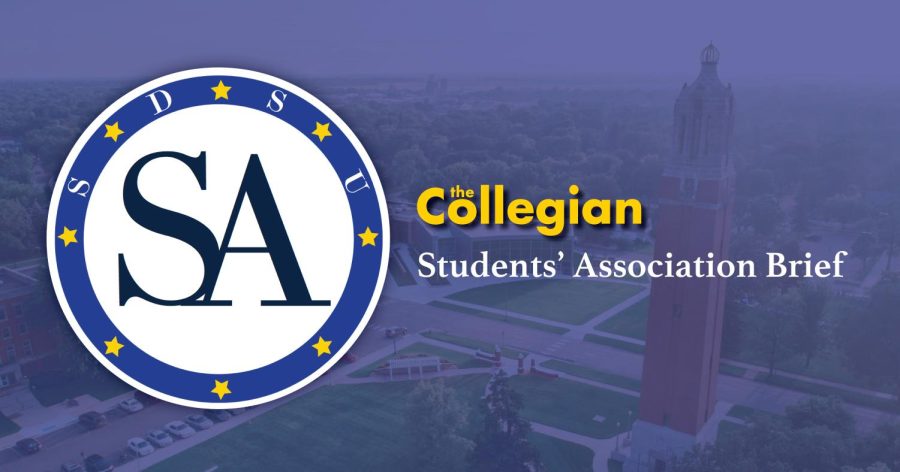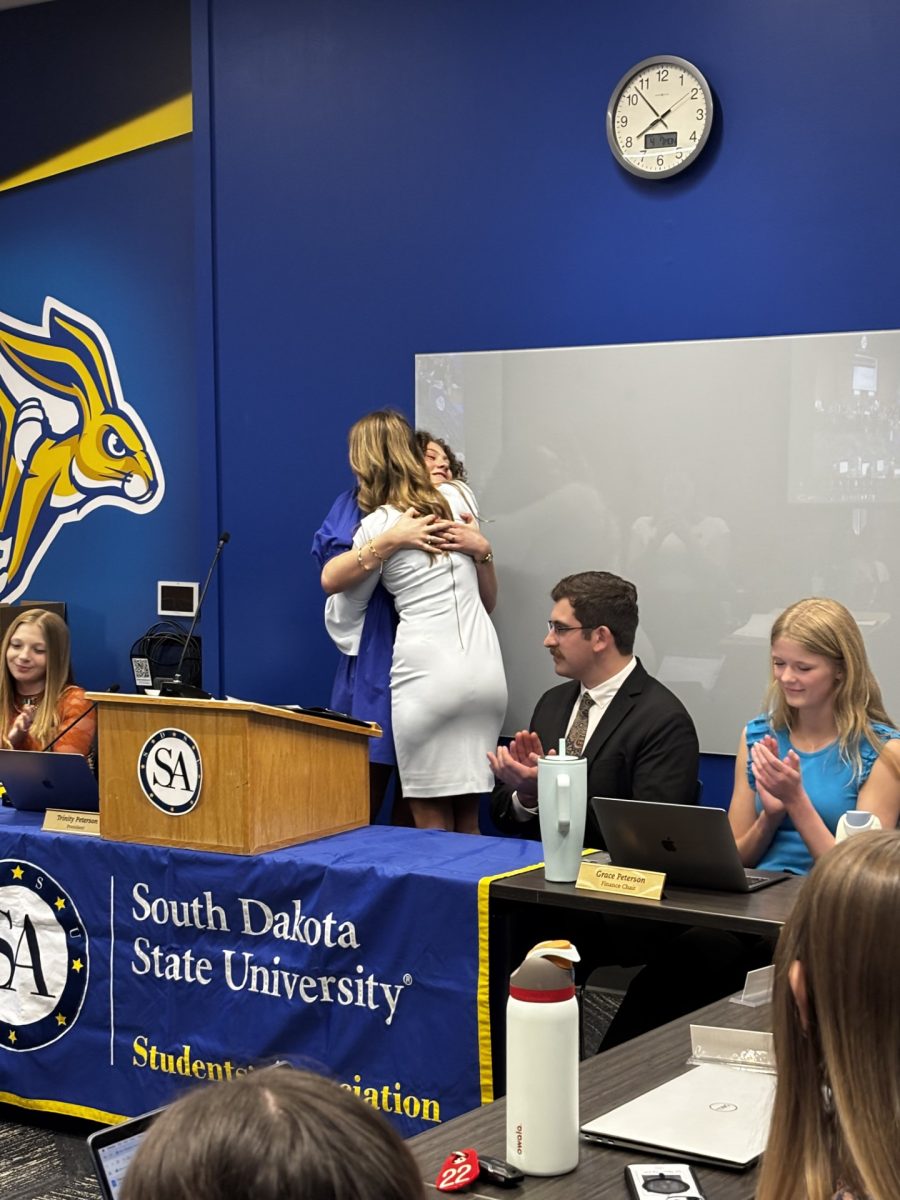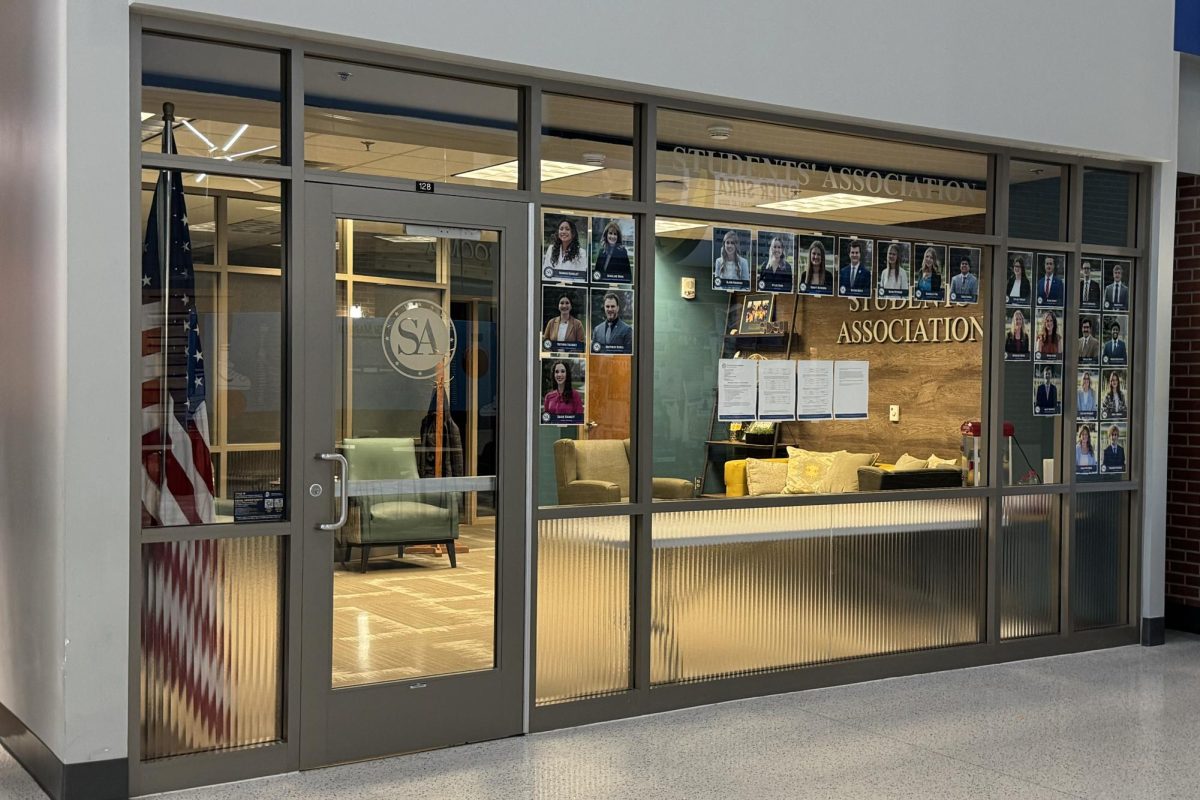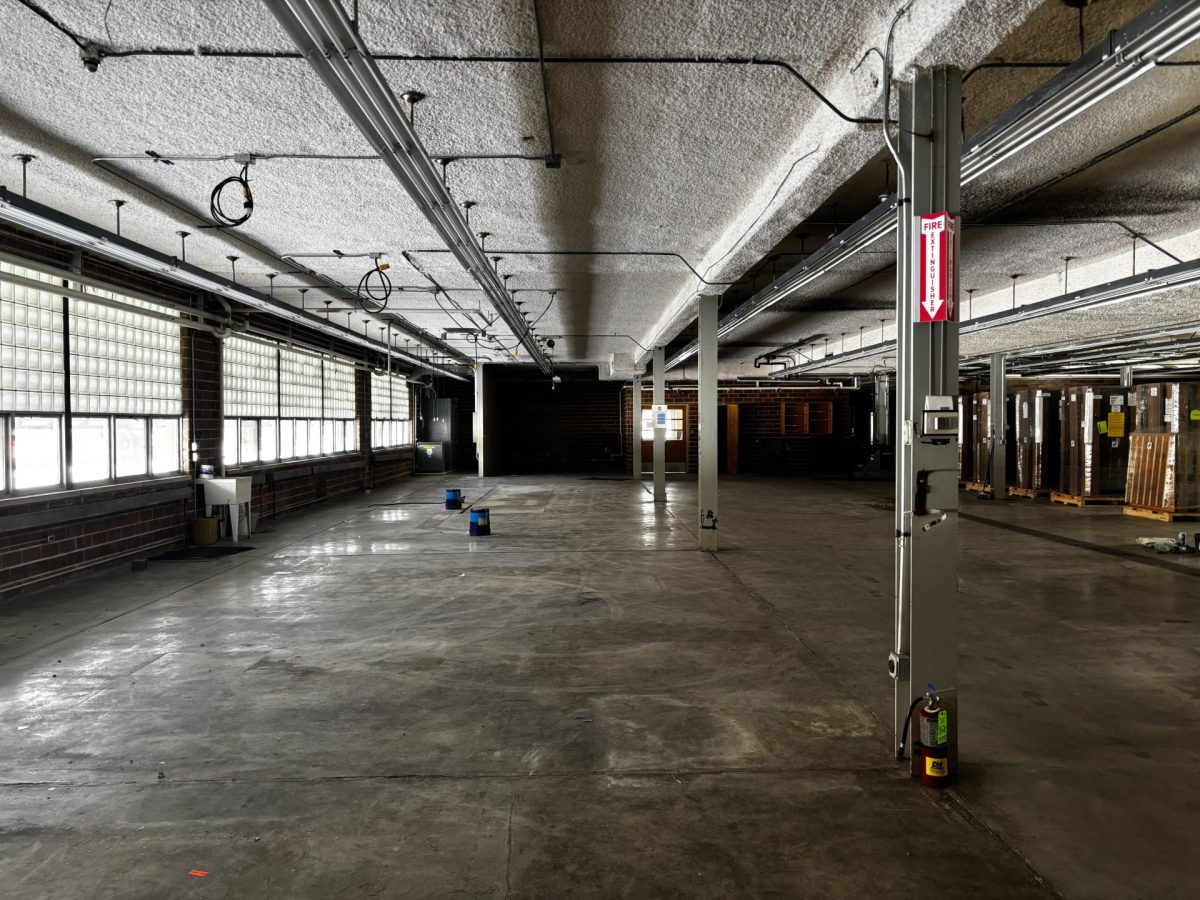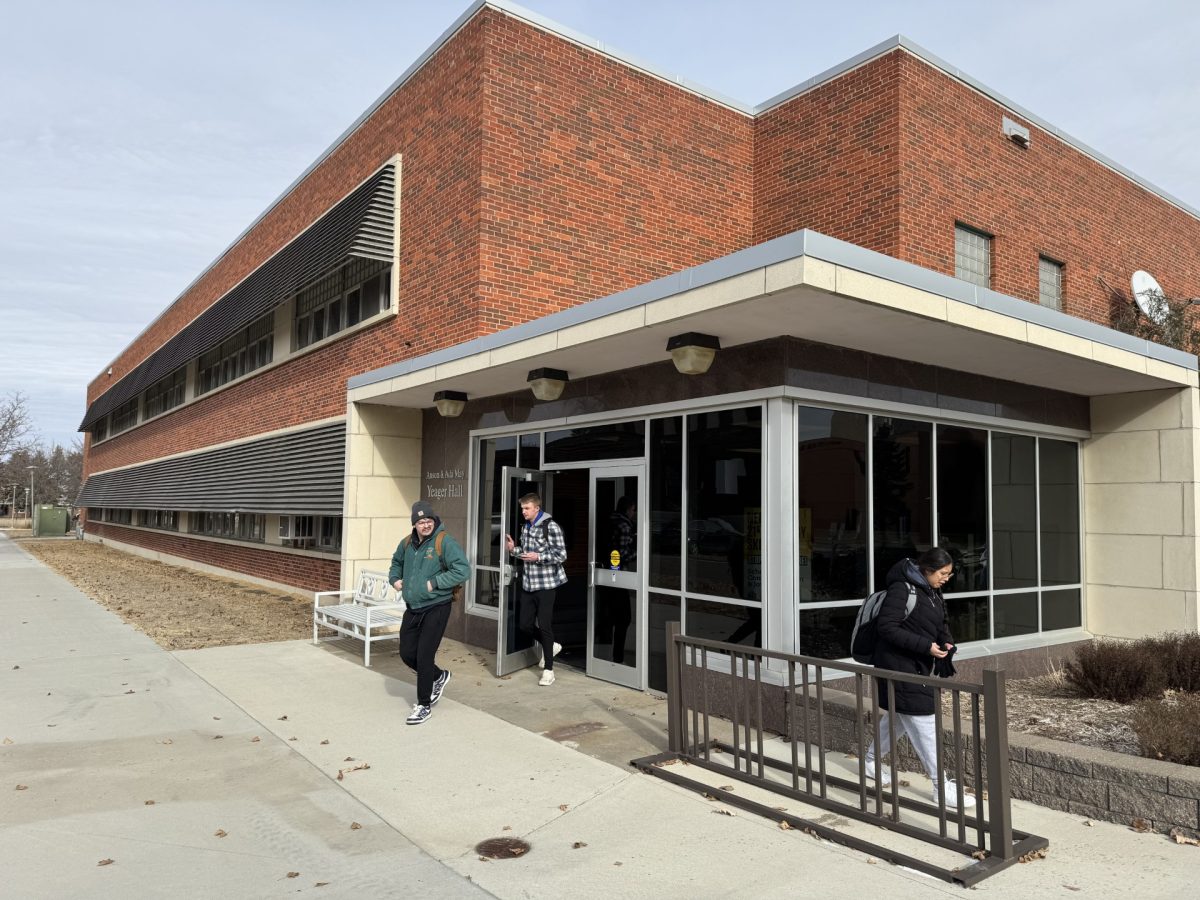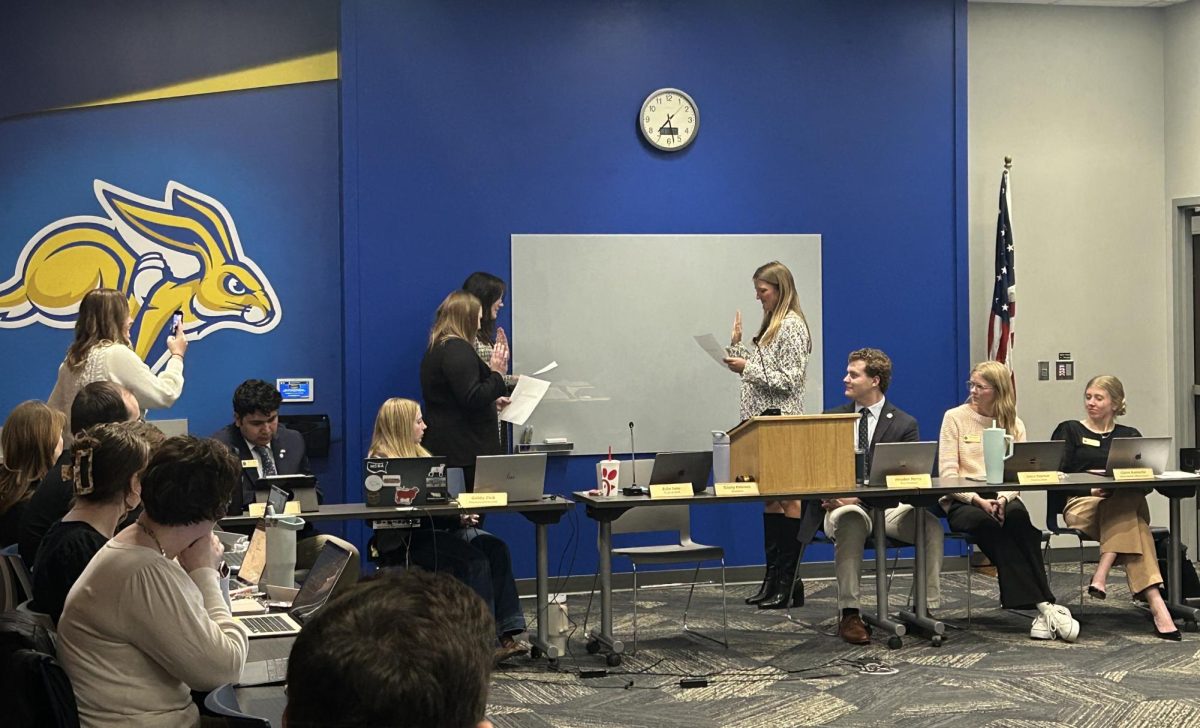The Department of Academic Affairs addressed the Senate Monday regarding the assessment of academic affairs, program accreditations and Pathway to Premier 2030 at the weekly meeting.
Academic Affairs Report
Dennis Hedge, provost and vice president for Academic Affairs, said, “So our team [Academic Affairs] is really responsible for providing academic leadership to the university and we work to promote, support and sustain student success and excellence in all aspects of our mission.”
Hedge said academic affairs also focus on teaching, advising, research and scholarship. Academic program accreditation in the university is one of the primary duties and responsibilities of Academic Affairs as it helps to provide federal financial aid for students in programs, Hedge said.
In addition to these, Academic Affairs oversee the curriculum and student success such as retention rates, along with faculty success.
Hedge presented his assessment on the academic perspective of the university with enrollment and retention numbers released earlier this fall. 83% retention rates among first-year full-time students were recorded, which is a record high for SDSU.
“Another really important number for us here at South Dakota State is academic program accreditations,” Hedge said. “We now have 65 accredited programs.”
Academic Affairs had previously targeted to have at least 60 accredited programs. Academic program accreditations are important as they portray industry level standards that basically set a threshold or a bar, Hedge said.
“We have this philosophy that if there’s any program that has a pathway to academic accreditation, we pursue that here at SDSU,” Hedge said.
Hedge, along with Vice Provost for Undergraduate Education, Teresa Seefeldt, plan to continue focusing on refreshing academic programs by working with advisory council and industry leaders. They also look forward to reassessing important academic programs that students seek along with their critical needs.
Hedge also said plans to refresh the strategic plan of ‘Pathway to Premier 2030,’ focusing on four different steps of expanding access to educational opportunities at SDSU, identifying strategies to connect through technology, identifying innovative programs and increasing utilization of high impact practices.
With plans of becoming a R1 university, Hedge mentioned that from an academic perspective, the plan is a simple formula that consists of 10 different elements. The criteria would involve research expenditures and impact that an institution makes with respect to doctoral education.
A search for academic leaders is on-going within two core college departments, first, the College of Education in Human Sciences, and the College of Natural Sciences.
Seefeldt provided updates on the mental well-being team at SDSU and initiatives they have planned till the end of 2023.
“The mental well-being team is a collaborative group with administration, faculty, staff and student representation,” Seefeldt said. “We started last fall and really last year was taking an inventory on what was going on-campus, developing a resource guide for faculty and staff to increase their awareness of responses toward mental health concerns.”
The team plans to focus on two initiatives this year– the first being community building, and second, professional development and training. Seefeldt described having a podcast for a variety of topics on mental well-being and is looking for student input on topics they would be interested in.
Hedge addressed Government Affairs Chair Michael Garofalo’s questions pertaining to the Board of Regents (BOR) scrapping the requirement of AHSS 111 class for students in the College of Arts, Humanities and Social Science (CAHSS).
“Back in 2017, that course basically became a requirement of most academic programs and now the amount of feedback they [BOR] have received to remove that course as a requirement was the decision they made,” Hedge said. “Once that decision was made, our office simply relayed the information though a memo that we sent to all the students at SDSU, as well as the faculty and staff.”
New Clubs on-campus
SA senators approved two new clubs, the National Organization of Minority Architecture Students (NOMAS) and the Tennis Club.
Lachhman Khatri, secretary of NOMAS and a master’s student in architecture, informed the Senate of the associations’ goal.
“NOMAS at SDSU hopes to provide a platform for collaboration, engagement and communication among architecture students within the department,” Khatri said. “NOMAS also wishes to foster diversity among the architecture community.”
Allie Weber, a freshman pharmacy major, recalled people informing her there was no tennis club on-campus. Currently, the new Tennis Club has about 35 members and had its last meeting on Thursday, Oct.19, before halting games for off-season until weather conditions improve next semester.
“I decided to create my own tennis club and it basically is a group that meets every Monday and Thursday night,” Weber said. “Unfortunately, in terms of travelling, we need to be an established group for at least a year before we get to participate in tournaments.”
Committee and Staff report
•Chief of Staff Benjamin Connor announced that ‘Student Tailgating’ would start on Saturday, Nov. 4 at 11 a.m. in the student tailgating section in collaboration with the University Program Council (UPC) and SA.
•UPC looks forward to hosting their ‘Do’s and Don’ts of Renting’ on Thursday, Oct. 26, at 6 p.m. in Rotunda D.
•Sen. Kaitlyn Lorang said 3,452 deficiencies had been sent out last week after midterms. Lorang also informed the senate on termination of the bachelor’s degree in early education and care, an online undergraduate degree which saw only nine students graduate with that degree since 2017.
New Business
The Senate voted to approve of $1,000 for the Collegiate Cattlemen’s Club, an organization for SDSU students who share common interests in cattle industry. They also approved $1,000 from the special allocation fund for the fishing club due to their positive approach to being active and participating in national fishing tournaments.
The Senate however rejected funds worth $10,600 for the Pakistan Student Association (PSA). Finance Chair Katie Neuhaus said that issues of the organizations sustainability and responsibility are questionable despite having wonderful intentions.
Neuhaus reported significant concerns about the lack of dates for events held by PSA and further suggested club leaders approach other alternatives for funding such as the International Relations Council (IRC).

















